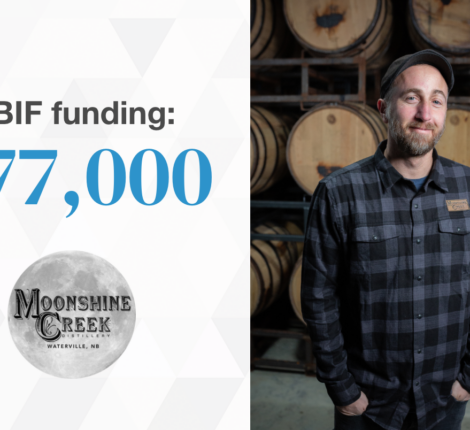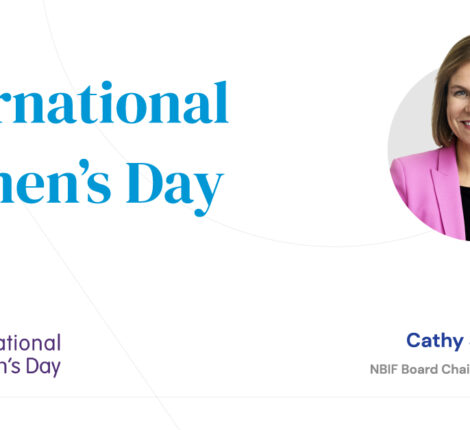- March 7, 2011
- Innovation Insights
- Comments : 0
UNB prof, students team up to pitch new, sharper surveillance technology
By Jennifer Campbell – The Telegraph Journal | link to original article
The Christmas tree is stolen from the lobby of your apartment building.
Fortunately the building is equipped with security cameras and the thieves are caught on its footage. Unfortunately, however, the pictures are so grainy there’s no way anyone in the building will recognize the grinches.
Enter Scene Sharp. The Fredericton start-up, one of six finalists in the New Brunswick Innovation Foundation’s Breakthru business competition, is working on a product that would see surveillance cameras that produce incontrovertible evidence in the form of perfect images.
The technology is called image fusion and Zun Zhang, UNB professor of geodesy and geomatic engineering, together with the university itself, have a patent on it for use in satellites where it’s been used for the past 15 years. But it’s been a technological challenge for the inventors to come up with a camera application that works the same way for ground surveillance.
In the satellite world, the technology combines the excellent resolution of black and white images with lower-resolution colour image technology to create pictures whose quality are at least three times better than what’s currently available on the surveillance market.
So professor Zhang’s next project – under the company name Scene Sharp – is to develop a bridge to get the system from satellite only to ground surveillance, and now he thinks he has it.
The camera lens and chip technology Scene Sharp is testing automatically detects motion, identifies the three-dimensional location of a moving object, communicates data about its size and shape, and improves image quality by at least three times of what is currently offered in the market.
As an added bonus, the technology he’s working on is automated.
“Professor Zhang’s technology is the only one that’s fully automated and that’s why we can change it and bring it down to use cameras on the ground, and motion cameras, because there’s no manual steps involved,” said Jordan deWinter, who is in charge of Scene Sharp’s marketing and business development. Zhang, meanwhile, is the president and chief technology officer for the company.
“We need certain hardware components that fit it correctly to make it work perfectly,” deWinter said.
The next move is to collaborate with camera manufacturers to get over the hardware hurdle.
“If the manufacturers build the camera with this intention, it should work,” Zhang said.
Already, the company principals (Pablo Alvarez rounds out the trio as a business adviser) have been meeting with would-be clients. Of great interest to them is the defence market, and they’ve had positive responses from both Canada’s Department of National Defence and from the American Secretary of Defense.
“Essentially the technology is great for low-light areas because it means that you get three times the light, without needing a light source,” deWinter explained. “It would be great for casinos. We’re also looking at the mobile phone market down the road because you never have enough light when you’re taking a photo with your digital phone.”
They’re also looking at applying their technology to medical scopes, which they predict can also use it to improve the quality of the images they take.
The Scene Sharp team intend to incorporate their company following the Breakthru competition and if they’re lucky, they can use some of their winnings to do so.
“If we win,” a modest deWinter says, stressing the “if.”
But even if they don’t, deWinter notes, they will likely approach the N.B. Innovation Fund for some venture capital funding.
“We’re hoping to make a deal with them regardless of the outcome of the competition,” he said.
The three principals seem an unlikely trio, what with a geomatics professor and two students from UNB’s business faculty. But the truth is, they came together under a UNB start-up initiative called the activator program.
DeWinter applied on the business side and then met Zhang. The two worked together developing a business plan around Zhang’s technology and deWinter invited his fellow student, Alvarez, to join him in growing the business side of things.
“It’s been a good opportunity for all of us,” deWinter said in reference to both the Breakthru competition and the activator program that initially brought them together.
Zhang needed help on the marketing side of his technology, particularly because, as a full-time professor, he has very little spare time.
And deWinter and Alvarez get to apply their theoretical learning in a very real case study where the potential benefits are great.
Commenting specifically on Breakthru, deWinter said: “It’s a pretty cool program with potentially extraordinary results.”
Fourth in a series about innovators to be honoured at the New Brunswick Innovation Foundation Breakthru gala on March 16 in Fredericton. Tickets for the dinner are available at www.nbif.ca.


